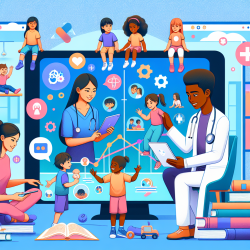Introduction
Adolescent mental health is a critical area of concern globally, with mental health issues and suicide being leading causes of mortality among young people. In India, home to the largest adolescent population, addressing these issues is paramount. The research article "India’s response to adolescent mental health: a policy review and stakeholder analysis" provides a comprehensive review of existing policies and programs aimed at tackling adolescent mental health challenges in India.
Key Findings from the Research
The study reviewed six key policies and programs and conducted interviews with stakeholders to understand the policy environment. The findings highlighted several critical areas:
- There is a lack of uniformity in age ranges addressed by policies, and vulnerable groups are not explicitly recognized.
- Common mental health concerns identified include stress, anxiety, and depression.
- Interventions are recommended across diverse platforms such as community, family, school, digital, and health facilities.
- Preventive interventions are suggested for delivery through peers and non-specialist providers, while treatment interventions are to be delivered by specialists.
- There is minimal engagement of young people in policy development and implementation.
- Challenges include lack of inter-sectoral coordination, budgetary constraints, and limited human resources.
Recommendations for Practitioners
Practitioners can enhance their skills and improve outcomes for adolescents by considering the following recommendations based on the research findings:
- Engage in Further Research: Practitioners should delve deeper into the specific needs of adolescents in their regions and adapt interventions accordingly.
- Promote Youth Engagement: Encourage active participation of adolescents in the development and implementation of mental health programs to ensure they are relevant and effective.
- Focus on Preventive Measures: Implement preventive interventions in schools and communities, leveraging peer educators and non-specialist providers.
- Enhance Inter-Sectoral Collaboration: Work towards better coordination among various sectors such as health, education, and social services to provide comprehensive care.
- Advocate for Policy Improvements: Use data-driven insights to advocate for policy changes that address gaps in current mental health strategies.
Conclusion
Addressing adolescent mental health requires a coordinated effort across multiple sectors and active involvement of young people. Practitioners have a crucial role in implementing evidence-based interventions and advocating for policy changes to improve mental health outcomes for adolescents.
To read the original research paper, please follow this link: India’s response to adolescent mental health: a policy review and stakeholder analysis.










